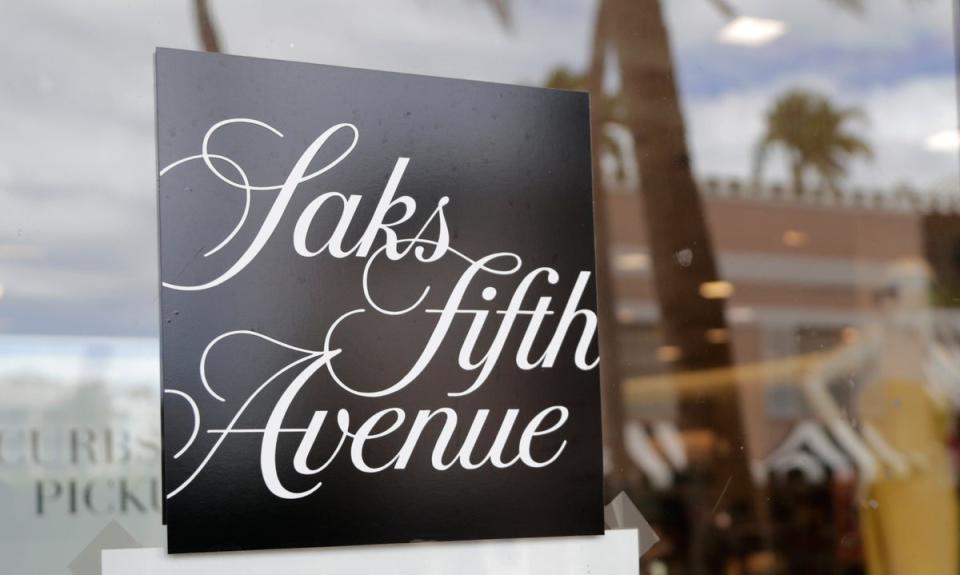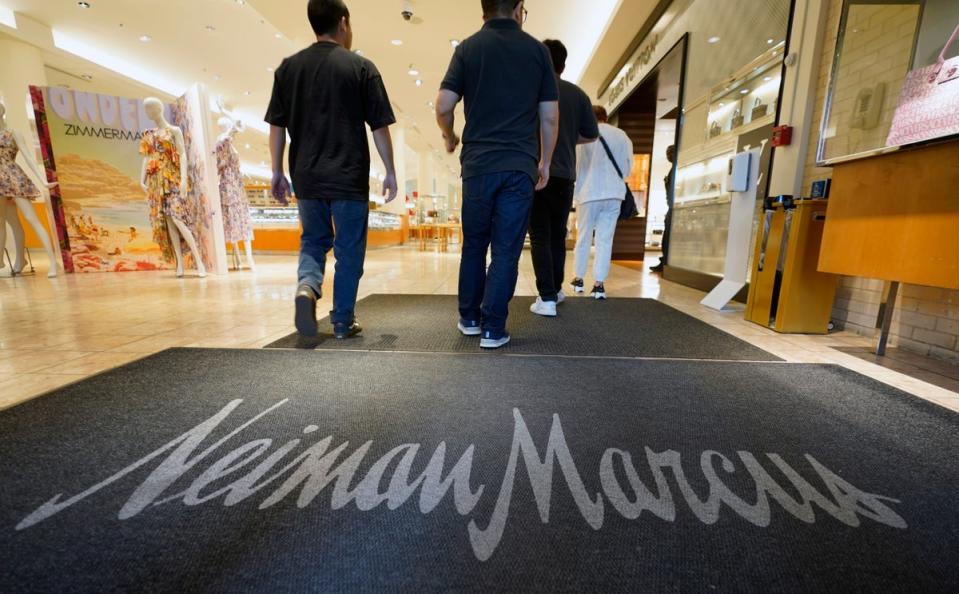Saks buys Neiman Marcus in $2.6bn deal — with a little help from Amazon

The parent company of department store chain Saks Fifth Avenue has agreed to buy luxury retailer Neiman Marcus in a $2.6bn deal.
The deal, which had been rumored ever since Neiman Marcus filed for bankruptcy protection during the Covid-19 pandemic, is part of Hudson’s Bay Company’s plan to build a luxury department store that will become the dominant player in the industry.
The deal was reportedly sealed with a little help help from Amazon, which is taking a minority stake in the newly-formed group Saks Global.
Salesforce is also a minority shareholder and is set to assist with the adoption of artificial intelligence.
Saks already does business with both tech companies.
“Customers love to go to a store,” Richard Baker, the chief executive and chairman of HBC, told The New York Times. “They love to touch a product and spend time with their personal shoppers.”
He added that the company is “not planning on closing any stores or digital businesses or reducing services in any way.”
Retail conglomerate HBC, which also owns the Canadian department store chain Hudson’s Bay, bought the American chain in 2013 — one year after HBC also acquired Lord & Taylor.
The conglomerate is financing the acquisition with $2bn it has raised from existing investors, while affiliates of the investment firm Apollo Global Management are providing $1.5bn in debt.

The deal means the new group’s only real rivals in the US will now be Macy’s, which also includes Bloomingdale’s, and Nordstrom. It will be run by Marc Metrick, the current chief executive of Saks and Saks.com.
“Saks has remained steadfast in our commitment to be at the forefront of luxury fashion, meeting customers not just where they are but where they are going,” Metrick said.
“Together, with our ongoing focus on innovation, we are primed to drive growth for our brand partners and create career development opportunities for the incredible talent across Saks Global.”
The deal is a bet that the companies will be stronger together than they have been apart. Neiman, which had been owned by various private-equity firms for years, filed for bankruptcy protection in 2020.
It emerged later that year with less debt and new owners, including Pacific Investment Management Co., Davidson Kempner Capital Management and Sixth Street Partners.
Last year, it made a little less than $4.7bn in sales after closing some stores. Meanwhile, HBC reported roughly $6bn in sales last year – up from $3bn in 2013.
Sales of luxury goods have slowed in recent years after pent-up demand coming out of the Covid-19 pandemic fueled a spending spree.
Inflation has also affected the luxury goods industry, with Bain & Co. estimating that luxury spending in the Americas fell eight per cent in 2023 compared to 2022, even as sales grew in Asia and Europe.
“There will be efficiencies, without a doubt,” Robert Burke, the founder of a luxury retail consulting firm, told the New York Times. “Retail has been sluggish lately, and maybe there will be more investment in both stores than there has been in the past. The real question will be how do the brands react to this? Especially the LVMH and Kering brands.”

 Yahoo Finance
Yahoo Finance 